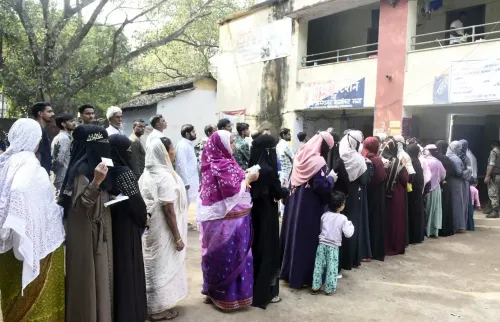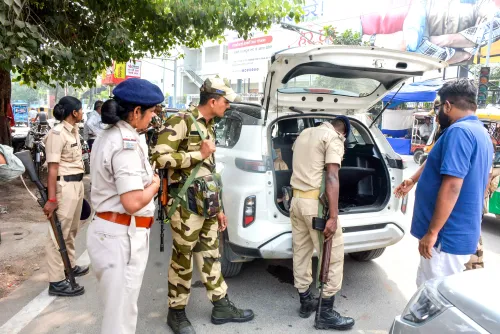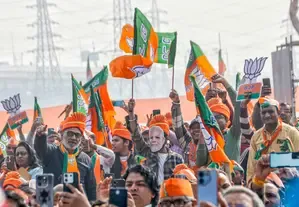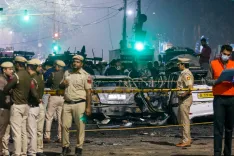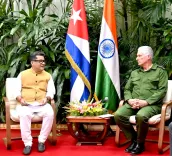Is Russia's Outreach in South Asia a Sign of Non-Coercive Diplomacy?
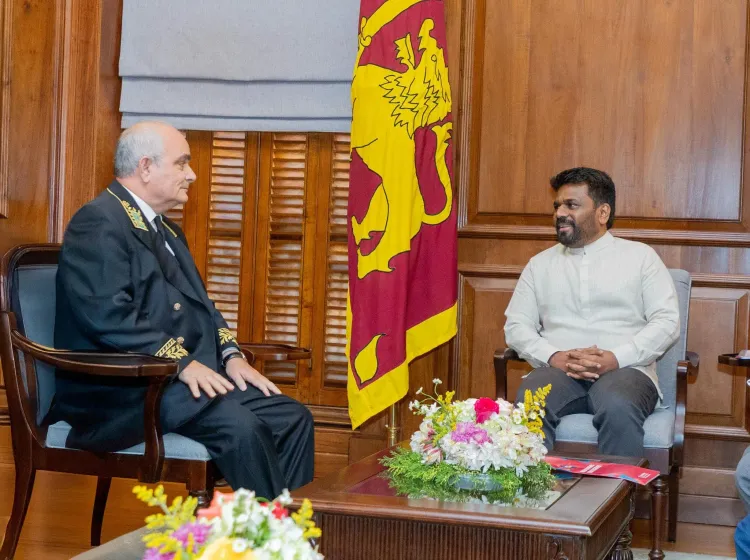
Synopsis
Key Takeaways
- Russia is enhancing its diplomatic outreach in South Asia.
- Engagements include trade, defense, and economic partnerships.
- Russia aims to stabilize Afghanistan while countering external influences.
- Military cooperation with Bangladesh is on the rise.
- INSTC is key to improving trade logistics in the region.
New Delhi: Russia is intensifying its efforts to affirm its status as a global powerhouse through enhanced engagement with the Global South, notably in South Asia. Recent interactions have been marked by an increase in trade, economic partnerships, and a notable rise in defense and military technical cooperation.
Representatives from 150 nations have been invited to the 13th International Meeting of High Representatives In-Charge of Security Issues, set to take place in Moscow from May 27-29, under the leadership of Sergei Shoigu, Secretary of the Security Council of the Russian Federation. This forum serves as a pivotal international platform for discussing security issues and enhancing cooperation among partner nations in combatting terrorism, extremism, transnational crime, and drug trafficking, as well as addressing emerging challenges. Following this meeting, the 28th Saint Petersburg International Economic Forum (SPIEF) will be held from June 18-21, further demonstrating Russia's commitment to strengthening ties with Global South countries.
Russia's interactions with six South Asian nations reflect a significant increase in its regional influence.
Afghanistan: The recent decision by the Russian Supreme Court to delist the Taliban as a terrorist organization signals Russia's intention to boost official relations with Afghanistan's interim government. In line with this, the Russian Foreign Ministry announced the elevation of Afghanistan's diplomatic mission in Moscow to Embassy status. Meetings between Zamir N. Kabulov, Russia's Special Representative for Afghanistan, and Taliban officials focused on enhancing bilateral cooperation, with discussions on infrastructure projects such as the Salang highway reconstruction and energy sector investments. Russia aims to stabilize Afghanistan while countering external influences, promoting bilateral trade, and enhancing investment in various sectors.
Bangladesh: Russia is keen to expand military cooperation with Bangladesh, with ongoing negotiations concerning military agreements and training programs. A recent visit by Army Chief General Waker-Uz-Zaman to Russia underscored this commitment. Discussions included military production collaborations, the import of Russian defense technology, and the potential for a formal labor export system to address labor shortages in Russia. Bangladesh is also exploring defense purchases and has expressed interest in participating in joint military exercises.
Sri Lanka: Russia is actively engaging with Sri Lanka in defense under the Action Plan for Cooperation Activities-2025. The country is interested in acquiring advanced vessels and drones, as well as seeking training in cyber intelligence. Ongoing military assistance continues, despite external pressures. Both nations are working to boost trade, which significantly lags behind potential, while exploring energy sector cooperation.
Maldives: Russia aims to strengthen its ties with the Maldives, recently appointing its first Consul General in Male. The Maldives has shown a cautious approach towards deepening relations with Russia but acknowledges the importance of potential investment and tourism. Recent trends indicate a possible shift in policy towards a more proactive engagement with Moscow.
Myanmar: Russia and Myanmar are strengthening their relations, with Myanmar opening consulates in Russian cities. Military and economic cooperation is on the rise, with plans for joint investment in infrastructure projects. Myanmar's dependence on Russian oil supplies is significant, as is the potential for labor cooperation.
Nepal: Recent outreach to Nepal includes invitations for officials to Russian events and discussions on resuming energy cooperation, particularly in hydropower projects. The Russian company RusHydro is looking to expand its presence in Nepal's energy sector, aiming to solidify cooperation.
INSTC: The International North-South Transport Corridor (INSTC) is crucial for Russia's strategy to enhance ties with South Asian nations, promising to improve trade logistics and economic collaboration.
Russia's constructive multilateral relations with South Asian countries illustrate its non-coercive diplomacy, enhancing its regional influence and enabling Moscow to engage effectively in ongoing conflicts while maintaining a stabilizing role.
(The writer is an expert on South Asia and Eurasia, previously associated with the Manohar Parrikar Institute for Defence Studies and Analyses. The views expressed are personal.)


